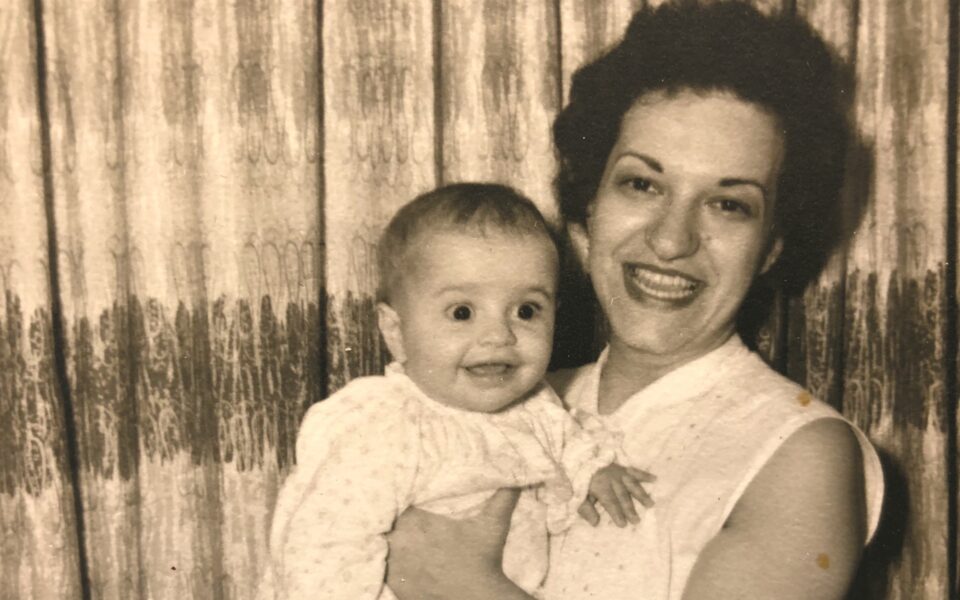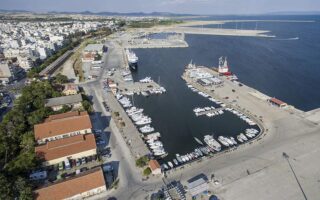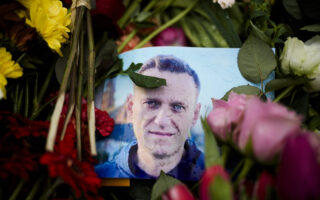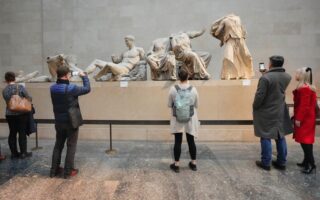Nostos for Greek adoptees: It’s long past time

Last December, a week before I left Greece for an extended trip to the United States, I launched a petition, the first ever I had attempted. It is titled “Nostos for Greek Adoptees.” It asks the Greek state to recognize 4,000 of us Greek-born adoptees, and to accept that the post-war Greek state was a party to our systematic export from our country, as we were offered for adoption to new parents and places unknown.
Many were legal adoptions. Many were not. Some babies were stolen from their loving parents. Many were separated from siblings. Some were separated from their twins. Others were snatched from hospitals at birth, their parents told they had died.
The petition asks for the opening of adoption records for all 4,000 Greek-born adoptees whose very lives may depend on information they do not have, such as medical histories. And especially, it asks for the restoration of our Greek citizenship for those who want it.
How can we do this responsibly? The petition lays it out. We establish a committee, sanctioned by the government that works independently and behind closed doors. It would comprise a representative from the government, a human rights attorney, a scholar who knows and understands this adoption history, and a Greek adoptee representative. This committee is given permission by adoptees to review all records, whatever exist, in order to ascertain identity. As Greeks. As adoptees.
The vast majority of Greek-born adoptees can and will answer these questions in the affirmative: Were you born in Greece? Did you have Greek parents? Were you one of the 4,000 so-called Lost Children of Greece? Do you want your Greek citizenship restored? The adoptees themselves would give permission, by notarized signature, to begin the review of each particular file and case.
That’s it. It would take a month, two tops, to confirm identity and, once confirmed, with the paperwork that is available (because some of it was destroyed), the government would move expeditiously forward to issue Greek citizenship and issue new passports. It would also allow for any and all adoption files to be returned to each individual to whom they belong.
I cannot begin to explain and describe what this means to us.
The petition. I sent it out into cyberspace and waited for results. They were disappointing at the conclusion of 2023. Barely 500 signatures. Totally disheartened, I thought, is that all who care? Only 500 people? They probably were all Greek adoptees. I only looked at the petition every so often, at that point, thinking that there was no underlying impact to what I had attempted.
But then something happened late last month.
I got a call from a bright, engaged young man, a university student, an activist in his own right, whom I am sure will be the Greek prime minister someday. He left a voice message. “Have you seen the petition? Something is happening,” he said.
Suddenly there were over 2,000 signatures. I went back to posting it on social media and in emails. I talked to anyone who would listen. Can you help by signing, I implored. Four thousand came, then 5,000. I got greedy and asked for 10,000, far beyond my wildest expectations. At last glance the petition was nearing 27,500 signatures (and counting) and at this writing might have surpassed that mark! Thousands supporting the human rights of Greek adoptees. And they are not only the Greek adoptees who have signed, but their supporters. Friends and family and other adoptees, including their own supporters who now stand with us. It is time for the Greek government to not only take notice, but to act.
We ask not for privilege nor favor, but only for what we deserve and once had. Countless people from the Greek diaspora have secured Greek citizenship through their Greek-born parents and many more are gathering the documents needed to do the same. I don’t begrudge those people. They have a legal pathway forward. And I don’t really begrudge those whom the government cherry-picks and recognizes for their laudable contributions to Greek society through their writing, their scholarship, their artistry, their athleticism.
That’s fine. But I’m sorry. We should be first. We need to jump the queue right now. We have waited the longest, since the 1950s. Meanwhile, the government needs to come to terms with its past, to acknowledge it by making things right.
Next to Moses himself, we are among the oldest adoptees from these modern times who were systematically extracted the way we were from our countries of origin, our parents, our first families. We are continuing to lose time, but now we have more hope than we have ever had in actually putting this part of history in the rearview mirror.
The hope came in the form of an intrepid academic and her important piece of scholarship. The academic is Professor Gonda Van Steen, the Koraes Chair at King’s College in London. The book is “Adoption, Memory and Cold War Greece: Kid Pro Quo?” It has been translated into Greek by Potamos Publishers in Athens. This book shined a light on this dark time in history. It examined how and why children were exported from the country. It revealed who was responsible. It reminded Greece of its own history. Those who were alive back then painfully remembered it. Those who never knew were educated. All were saddened. Many were shocked.
What followed was what seemed like a flood of literature about adoption. And the voices of adoptees were being raised not only in Greece, but all over the world. Adoption in and of itself can be fine, if handled properly. The problem was and still is that it is not handled properly. The adoptees themselves have experienced lifelong ramifications. Children were separated from their first families. Birth mothers were left heartbroken. Records were closed. Citizenship was stripped away. Canceled. We were all in some way or another exiled. Many of us still are by this separation from paperwork and kin and birthright. The entire process amounted to the consummate theft of identity. But now there is a way to fix this painful issue for the millions of adoptees in the world and for we Greeks who have waited the longest.
Restorative justice can and should be a reality. Right now. The identities of children need to be preserved and protected. Adoption records need to be unsealed and returned to the adoptees. Medical histories need to be accessible and transparent. And citizenship for those who want it, a passport issued, should be easily, apologetically, and magnanimously granted. This recognition helps fill in the missing ceramic chips of our mosaic lives, which have been fractured in one way or another.
Robert, born Marinos, was separated from his twin brother. They were raised as only children during their formative years. Parallel lives, one not knowing the other existed for years. Robert’s twin is a Greek Orthodox priest living in Athens. Robert deserves his Greek citizenship.
Dena was stolen from two loving parents near Arta. She was raised an only child and separated from her parents, two siblings, and 27 first cousins for 42 years. Her mother is alive and well in their village of Kastania. Her siblings live in Greece. Dena deserves her Greek citizenship.
Alexa was in a Greek orphanage until age 4. She has memory of feeling alone and unwanted. Her biological mother is dead now. She keeps searching for kin, including her father. She has spent thousands of dollars to secure that elusive Greek passport, which has remained unattainable. Alexa deserves her Greek citizenship.
David’s biological mother wrote to him from the time he was taken from her. She never forgot her son and hoped one day he would return to her. He finally found her and returned to his village on Naxos where his mother is alive and well. David has Greek siblings. David deserves his citizenship.
Nick was left on a street corner in Patra, a foundling, with no kin to be found to this day. He keeps looking, taking every DNA test that is available. The priest who baptized him gave him his own name, Nikolaos. Nick deserves his Greek citizenship.
Maria was the product of a rape. Her teenage mother was taken advantage of by a family friend. She left her mountain village, delivered her baby girl, and wanted to keep her, but was unable. Too poor, too shamed. Maria has a sibling and relatives in Lefkada. Maria deserves her Greek citizenship.
Ellen has been looking to connect with kin for years. She was finally reunited with a full sibling who later died prematurely. There were unfortunate mishaps along the way, mistaken identities and “reunions” that went very wrong. Ellen deserves her Greek citizenship.
And Chris, a difficult, painful story of relinquishment at age 7 from her parents and siblings in Kalamata. Forced onto a plane with strangers, she arrived in America alone, lonely and broken to new parents who had no idea of how to make her feel wanted, safe and secure. That she belonged. Her village home in Greece remains and so do her biological siblings who would like nothing more than to welcome her home as the Greek citizen she once was.
These are just a few examples of the hundreds of people with similar, heartbreaking unfinished realties.
Here in Greece, we will not let the government forget about us and the petition serves as a reminder. Hear us now. To all those in power, see that we finally found steady legs on which to stand and that our voices have been strengthened by what is happening all over the world.
Adoption is in the news around the globe. Adoptees are fighting for their human rights and supporters are also there to lift them up, the wind beneath their wings. This is what the petition reflects. Thousands of people now are throwing their weight, shining their light on a once dark place. Greece itself is in the spotlight.
What an occasion it would be to close the book on this real-life Greek tragedy. To right a wrong. To bring closure and comfort. To highlight the new and many contributions of new Greek citizens.
And what a win it would be for the Mitsotakis administration. To see it through. To be the one that brings justice and recognition. And to celebrate the return of its children as recognized members of its modern, progressive society. We could organize a ceremony to welcome these particular proud Greeks home.
Nostos
And what does Greece get in return? More love. More pride in this great, small country. And a contribution to the booming Greek economy as more people return to the country, to stay longer, and to spend money and to show Greece to their children and grandchildren. To show them where they are from.
“Citizenship means a chance to make a difference to the place where you belong.” Greek adoptees may not return to live in Greece but we most certainly belong. And we will make a difference by contributing to this country’s growth and to its reputation, once as a country that established a cadence for the entire world, now a modern country that stands up, deliberate in its decision to make a conscious commitment to a group of people who deserve the right of return as Greek citizens.
Make no mistake. This is not a political calculation. It is a human calculation for justice.
This petition, Nostos for Greek Adoptees. Will you help by signing it?
Dr Mary Cardaras is the founder and director of The Demos Center at The American College of Greece. She is a writer, journalist, and documentary film producer. A Greek-born adoptee, she is the author of “Ripped at the Root” (Spuyten Duyvil, 2021) and editor of “Voices of the Lost Children of Greece” (Anthem Press, 2023, in English, Potamos Publishers, 2023, in Greek). [email protected]





